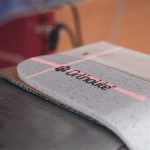Taking the company’s high-intensity workout approach to court, CrossFit claims in the company’s lawsuit against Reebok that the company is owed “at least $4.8 billion,” plus potentially more for underpaying marketing obligations and diverting sales to reebok.com to also reduce royalty payouts.
In 2010, Reebok secured the exclusive license to sell fitness apparel and footwear products bearing the CrossFit trademark for ten years.
According to the lawsuit filed in the United States District Court, Northern District of California, CrossFit claims that the CrossFit rights have since “breathed new life into the Reebok brand and played a critical role in helping Reebok make a long-overdue comeback.” CrossFit described the deal several times as a “bargain” given the subsequent further growth of CrossFit.
At the heart of the lawsuit is a dispute over the royalty rate Reebok should be charging as part of the company’s agreement. CrossFit claims that Reebok at points based the rate on wholesale revenues rather than retail revenues, bringing the rate down 50 percent.
Seemingly secondary charges are that Reebok failed to meet “substantial marketing commitments,” although that’s because CrossFit claims Reebok refuses to provide proof of the company’s marketing spend behind CrossFit. A third charge is that Reebok funneled potential customers of CrossFit-branded products to Reebok’s online store in order to avoid higher royalty from sales on CrossFit’s online store.
The lawsuit also indicated that Reebok’s relationship with CrossFit will likely end in 2020 when the contract expires, if not sooner.
“All told, Reebok’s deceptive and dishonest conduct has robbed CrossFit of the benefit its bargain to the tune of at least $4.8 million in royalties and has tarnished what was once a golden opportunity for Reebok to revive its image and establish a long-term partnership with the highly-valued crossfire brand,” CrossFit said in the release.
In a statement, Reebok vehemently denied the charges and said the company remains fully committed to supporting the CrossFit community.
Reebok’s statement read, “The allegations set forth in CrossFit’s complaint have no merit. We are disappointed that CrossFit chose to escalate a disagreement between longtime partners in an unreasonable manner that damages Reebok’s reputation. We will respond through the appropriate legal channels and we expect a favorable outcome. In the meantime, Reebok will continue to fully support the community of coaches, athletes, boxes and members who inspire us every day with their passion, energy and camaraderie.”
In the lawsuit, CrossFit said the company’s relationship with Reebok “appears to get off to a good start,” with Reebok fully paying CrossFit for royalties owed under the agreement for 2011 when sales started happening, as well as 2012. In 2013, CrossFit claims that Reebok began basing the royalty rate for items sold online at the lower “wholesale equivalent price” rather than the higher retail price. CrossFit said the change “effectively gutted the royalties Reebok owed in certain channels by 50%.”
CrossFit said that the company believes that Reebok made the change because “CrossFit was unlikely to detect the underpayments due to both the rapid growth of sales of licensed product and by virtue of that fact that Reebok’s royalty reports excluded whether net sales were based on wholesale prices or retail prices.”
In early 2016, CrossFit exercised the company’s audit rights under the agreement for the first time, but said Reebok refused to provide the auditor CrossFit hired with “complete” data “in an apparent effort to camouflage the underpayments.” During meetings at the time, Reebok proposed a new royalty calculation methodology referred to as the “Adidas Group Method,” under which Reebok would apply an increased royalty rate at wholesale prices. CrossFit wrote, “Upon information and belief, proposing this new royalty calculation was intended the conceal the fact that Reebok had already been using wholesale prices, without the correspond royalty increase, since 2013.”
In late August of that year, CrossFit identified numerous deficiencies in Reebok royalty report for the second quarter. By December, Reebok proposed an amendment that would “ratify, post hoc, the royalty valuation method it had been implying and hiding from CrossFit.” CrossFit refused to accept the proposed amendment.
In early 2017. Reebok acknowledged the underpayments, according to the lawsuit. In a royalty reconciliation docket prepared by Reebok in February 2017, Reebok admitted that the company had been making royalty payments “by calculating royalty at 1/2 of net sales for the eCom channel … resulting in a payment shortfall of $1.65 million.”
Reebok did not refund the $1.65 million owed, but for the first three quarters of 2017 and “for the first time since 2012, Reebok paid royalties in accordance with the agreement,” CrossFit wrote in the lawsuit.
However, Reebok “returned to its deceitful practices again a few months later” when the company began basing royalty payments based on the wholesale, not only for sales online, but offline sales as well.
Other charges in the lawsuit are that Reebok has failed to comply with the company’s marketing obligations under the agreement. Between 2011 and 2017, Rebook was reportedly required to spend $51.75 million on marking CrossFit branded products and CrossFit events. CrossFit wrote in the lawsuit, “Despite countless requests, Reebok has failed and refused to produce any credible evidence that it satisfied its $51.75 million marketing commitment.”
CrossFit also charged that Reebok failed to keep “accurate, separate, complete, up-too-date books of account” concerning sales of CrossFit branded products as required by the agreement. CrossFit writes, “To this day, Reebok has been unable to explain or justify the basis for payments it has made. Instead, Reebok has made matters more confusing by providing multiple, conflicting sets of data to CrossFit.”
Finally, CrossFit charges that Reebok failed to appropriately market and stock CrossFit products on the store.crossfit.com website operated by Reebok, while at the same time full stocking the same products on reebok.com. CrossFit claims Reebok did so because the company pays a higher royalty rate on sales through store.crossfit.com, 10 percent, as compared to reebok.com, 5 percent. CrossFit wrote, “Reebok has deprived CrossFit of the benefit of its bargain and unfairly funneled prospective customers of CrossFit-branded products to Reebok’s website in an effort to promote Reebok’s other products and avoid paying higher royalty rate for sales on store.crossfit.com.”
CrossFit Inc. CEO Jeff Cain said in a statement, “Reebok signed a sweetheart deal before CrossFit was a household name and our growth helped make their brand relevant again. … But it’s past time for them to meet the terms of our agreement and that’s all we are asking for today.”
In the suit, CrossFit said has more than 15,000 gyms across the world that are licensed CrossFit affiliates. The CrossFit website averages 80 million hits per year and the CrossFit Games, televised on CBS, “draw tens of thousands of participants and hundreds of thousands of viewers each year.”
The lawsuit will determine to what degree CrossFit athletic footwear and apparel “has surged,” as CrossFit contends, under the deal, as well as the degree to which CrossFit is helping with Reebok’s revival.
In the statement, CrossFit pointed to an article from Business Insider in 2016, entitled “CrossFit is Leading to a Huge Revival for a Once-Disappearing Fitness Brand.” The lawsuit also contends unnamed Reebok executives have publicly acknowledged that CrossFit’s impact on Reebok has been “profound,” and has enabled Reebok to “turn the corner.”
Reebok, however, has long underperformed, and any recovery in recent years has missed the U.S. region where CrossFit was founded.
Acquired by Adidas in 2005, Reebok’s shift from traditional sports to fitness, as well as away from promotional pricing to premium pricing supported by cutting-edge innovation, has been spotty at best. The shift came a few years before the company hatched the CrossFit deal.
“While Reebok has recorded top-line growth for several years in a row, the brand’s overall market share remains below levels seen in the past,” Adidas wrote in the company’s 2017 annual report. ”In addition, there has been no growth in Reebok’s home market, North America, in the recent past and the brand’s margins are not accretive to the company’s overall profitability.”
Reebok in 2016 updated the company’s turnaround efforts with the launch of “Muscle Up,” a four-year plan designed to accelerate Reebok’s top-line growth in the U.S. and improve the company’s overall profitability.
On a currency-neutral basis, Reebok’s revenues declined 7 percent in 2015, were down 1 percent in 2016 and gave back 2 percent in 2017. Reebok has been closing many of the company’s outlet stores to help the company’s positioning in the marketplace.
In the first quarter, Reebok’s global revenues were down 3.0 percent on a currency-neutral basis to €440 million ($527 mm) while sinking 10.6 percent on a currency-neutral basis. The decline was mainly due to sales declines in Asia-Pacific, Russia/CIS and Latin America. The Asia-Pacific business was impacted by declines in Japan due to a mature economy and South Korea due to the impact of travel bans on Seoul.
North America returned to growth in the first quarter, up 3 percent. A return to growth for Reebok was also seen in Western Europe. Gross margins at Reebok grew 270 basis points to 41.8 percent, driven by successful execution of Muscle-Up initiatives.
Said Adidas CEO Kasper Rorsted, “We are getting closer to the point that we’re striving for. That is turning the Reebok brand into becoming profitable. We are at the same time continuing to invest into the Reebok brand over-proportionately.”
Photo courtesy Reebok
















